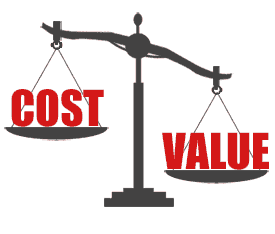Jeremie Averous's Blog, page 5
December 21, 2021
How Civility Becomes an Explicit Expectation in Society
This Gapingvoid rant ‘Want to be a better human?‘ brings back the issue of civility (as in “civilized conduct (especially: courtesy or politeness) or a polite act or expression” [Wikipedia]). It is not the first time I hear about the explicit comeback of this simple concept, which before was quite an implicit assumption of social life.
[image error]“As organizations shuffle from minority to minority, demonstrating how much they care & how inclusive they are, what is completely overlooked is the unsexy conversation about being nice, respectful, and kind, treating others fairly, and a hundred other courtesies that our moms taught us, or should have.”
I can’t more agree with this statement. It is a pity that people need to be reminded of their duty about civility explicitly, still is a a foundation of life in society and preempts any debate a difference and discrimination.
Maybe it is worth reminding more broadly about civility, what it means, how it is practiced. That we need to do it, however, shows the failure of both family and school to bring a minimum of social skills to people.
Let’s thus be more explicitly require civility and explain what it means. This is a minimum for social interaction and if it needs to be explicit so be it!
The post How Civility Becomes an Explicit Expectation in Society first appeared on The Fourth Revolution Blog.December 18, 2021
How The Unregulated Industry of Life Coaches Raises Questions
This Guardian article ‘I’m a life coach, you’re a life coach: the rise of an unregulated industry‘ explains very well the inherent contradictions of the status of life coach. It is completely unregulated and dominated by a number of well-known figures of sometimes questionable reputation (as exposed in the article). It also obviously responds to a societal need, but isn’t it dangerous to let people getting influenced by unqualified professionals?

Trainings and certifications are diverse in quality and seriousness. The number of candidates to become life coach increases dramatically with each major crisis. In my experience, many do explore this career out of a personal need first, before looking at it as a way to change others for the better. In reality, many life coaches do have a less-than-ideal personal life and happiness, although they try to project a well-balanced impression.
There are drawbacks to a too severe professional certification scheme. It creates institutions that decide what is right from wrong. It can lead to situations where innovative or radical approaches will be rejected while they can be useful. Thus it is not necessarily the best solution in all cases.
At the same time when it comes to mental health, is it reasonable to add a layer of simili-professionalism to general advice on how to feel better? Having a coach implies some seriousness in the commitments taken, but one of the most important functions of a coach is to determine when people need more professional psychological help. It is unsure that all life coach trainings include that element so clearly.
I am definitely in favor of some self-regulation of the life coach industry. The ICF (International Coach Federation) is quite a good and demanding scheme that leaves some leeway in the coaching practices. Similar certifications should be requested from your coaches.
The post How The Unregulated Industry of Life Coaches Raises Questions first appeared on The Fourth Revolution Blog.December 16, 2021
How AI Can Only Produce Mediocre Content
In this excellent post ‘Why AI Will Not Create Great Content Any Time Soon‘, Christopher Penn makes the point that AI can’t really be trained to make better than mediocre content. Still it can certainly create heaps of it!

The point is that AI needs to be trained, therefore it will be trained on existing content. And existing content is scrapped from the web. The post goes into detail on the origin of those training databases used to train content-generating AI. It is not a huge database, and while the people that have created them have tried to filter the worst, it mainly contains average content.
“Which means that natural language models will inherently be biased towards creating mediocre content, content that’s readable and coherent, but not compelling or unique, because that’s what the vast majority of the language is that they are trained on.”
The post continues with actual real life experiments on actual content, asking for an AI algorithm to fill-up the remainder of the text. It appears quickly that it can’t imitate unique writing styles or unique ideas.
Of course the problem is that AI generated content can be produced much more easily and may flood media, drowning the best content. On the other hand, people have learned where to find unique content so for the foreseeable future, as long as your content is unique in terms of style and content, AI will not be able to imitate you!
The post How AI Can Only Produce Mediocre Content first appeared on The Fourth Revolution Blog.December 14, 2021
How Robot Clusters Are Increasingly Effective
This MIT post ‘“Particle robot” works as a cluster of simple units‘ describes a research project about very simple robots working in clusters to undertake jointly substantial tasks such as moving objects or moving about jointly.

I tend to believe that exploiting cluster behavior of relatively simple robots is probably one of the most innovative applications of robotics and that it will transform approaches focusing today on large machines. Progress of research in this field is also essential to understand the behavior of natural clusters of birds and other animals.
“Particle robots can form into many configurations and fluidly navigate around obstacles and squeeze through tight gaps. Notably, none of the particles directly communicate with or rely on one another to function, so particles can be added or subtracted without any impact on the group. In their paper, the researchers show particle robotic systems can complete tasks even when many units malfunction.”
The best feature of clusters is certainly resilience to the loss or destruction of one component while still be able to continue the mission. In civilian and military applications, clusters will certainly develop to address dangerous situations where resilience is paramount.
Robot clusters will certainly be a common feature in a decade from now, and it is essential to keep up with this interesting development.
The post How Robot Clusters Are Increasingly Effective first appeared on The Fourth Revolution Blog.December 11, 2021
How Robot Chefs Start Selling Food To Go
In this excellent post ‘The New Top Chef‘ Alex Tabarrok explains how “During the pandemic a pasta restaurant launched on UberEats in Paris. Cala quickly attracted a top 1% rating for it’s high quality to price ratio. Only now has it been revealed that the chef is a robot“.

This was actually a startup hidden behind the storefront, conducting a real blind experiment to prove its concept. This saves a bit on labour and also mainly on real estate as mentioned in this article: ““With three metres squared, we can serve 1.2k meals an hour,” says Richard. “A traditional McDonald’s restaurant is 125m2, and usually they can serve 550 meals an hour.”
This gives a glimpse of a future where the preparation of common food will increasingly be automated to support delivery or on-the-spot consumption, while competition between restaurants will be increasingly on fancy food and great atmosphere. The price gap between various options can be expected increase, while labour will move from burger-flipping to service and delivery.
The advent of robot-chefs is just a visible change that automatization will bring to our daily lives. Are you ready for it?
The post How Robot Chefs Start Selling Food To Go first appeared on The Fourth Revolution Blog.December 9, 2021
How Luck Plays An Essential Role in Success
This interesting BBC post ‘The dirty secret about success‘ puts back the subject of luck to the forefront. In computer experiments simulating social interactions and including random luck factors, luck was identified as a major parameter of social success.
 Luck, Fortune, And Chance
Luck, Fortune, And Chance“Very often, the most successful people are moderately talented but very lucky“. “Italian researchers] used a computer simulation of success defined by financial wealth to show that the most successful people in the world aren’t necessarily the most talented. They are the luckiest.” As a result, the researchers have proposed ways to improve reward based on talent rather than actual luck.
I am a student of luck as I am certain it defines a large number of outcomes (see for example previous posts ‘What Luck is Really About‘ or ‘How We Constantly Underestimate the Role of Luck in Our Lives‘). It certainly plays an important role, and at the same time we can’t just wait to see what luck brings us.
Luck is important and should not be neglected. One of the limits of the approach though is that nowadays, success more often happens in teams rather than individually. How to account for collective luck, at several scales (individual / team / organization / society?). Certainly a topic for further research!
The post How Luck Plays An Essential Role in Success first appeared on The Fourth Revolution Blog.December 7, 2021
How Becoming Nimble With Change is an Essential Competency
In this post ‘Becoming Nimble at Dealing with Ever-Changing Plans‘, Leo Babauta expands on our difficulties to adjust in a world changing increasingly quickly. The ability to be nimble is an essential competency today (and I am still personally working on it!)

He shares some principles to reflect upon:
Every change is a trainingUse changes to stay presentLearn to relax with uncertaintyPractice flowing with changesYou can find focus in chaos, with practiceStructure is very helpful, but don’t be attachedFinding joy in the middle of the stormDeveloping this competency is certainly essential in an accelerating world where plans change. The Covid situation has added another layer or unpredictability in particular when it comes to travel or work plans. Let’s get better at it!
The post How Becoming Nimble With Change is an Essential Competency first appeared on The Fourth Revolution Blog.December 4, 2021
How To Overcome the Moral Link Between Value and Effort
Seth Godin in this post ‘Labor and value‘ reminds us of the various historical theories about value. In particular, the Marxist ‘labor theory of value‘ stating that value is proportional to the amount of labor (cost) gone into it. This theory however still provides a kind of moral limit to the value (price) we propose.

Having an estimate of value independent of cost is difficult to understand in business: I still have a tendency when I sell a product or service to believe that its value (price) should be somewhat correlated to the effort (cost) that has gone into it. This consideration is almost a moral statement: it is based on the consideration that it would not be fair to charge for significantly more than the direct effort gone into the item or service.
However, this thinking is quite wrong, for three reasons:
Value lies in the eye of the beholder, or the client (informed by the market / competition and its own needs). What I propose may have much more or quite less value for it than the effort that has gone into it. Selling for a large value (price) something that has taken not so much effort to build will pay for other services or products that I can’t sell for such a high price (such as new innovative product that are looking for their proper form to produce value for clients)In addition to the direct cost or effort, we must consider that our product or service is also the result of years of practice and learning, and that a large part of the value is actually indirect value of this significant investment, and not just direct effort (this is particularly visible with new clients where we can often deliver huge value for very little effort just by bringing to bear our knowledge)If we don’t sell at the right market price reflecting actual value, we will be in a weaker financial situation compared to competitors, thus impeding our capability to develop innovative products or services (still, it is good to sell slightly less that competitors to increase market share!)In the end we should overcome the moral imperative of linking value with effort. Everyone values things differently, and this diversity is promoting innovation.
The post How To Overcome the Moral Link Between Value and Effort first appeared on The Fourth Revolution Blog.December 2, 2021
How Institutions Must Adapt More Quickly to Our Exponential World
This interesting Wired article ‘The Exponential Age will transform economics forever‘ provides some extracts of Azeem Azhar’s new book ‘Exponential‘. The statement is that the economy and society will be fully transformed by exponential growth of technology – with the risk that institutions, only able to adjust linearly, will lag behind.

Starting with the observation that we are not well geared to understand exponential development (see for example ‘How We Get Always Surprised by Exponential Growth – But We Shouldn’t‘ or ‘The Exponential Deception, or Why We Always Underestimate Incremental Change‘), the author states that economy is going to be transformed by exponential development of new technology and capabilities.
But is exponential growth really new? Looking back at the emergence of new industries in the 19th and 20th century, I am not so sure. Of course what has changed in the last decades is that markets are now global, and the speed of development and spread of new technologies (in years, not decades), but fundamentally this type of development has always been there since the start of the industrial age. Companies that have achieved full dominance of a particular new industry have existed before (Rockefeller – Standard Oil in oil, AT&T in communications…), and institutions have struggled to catch-up (for example with anti-trust laws). The same is happening now, but is it really worse?
The main point made by Azeem Azhar is the difference between ‘linear’ institutions and ‘exponential’ technology and industry growth. This has always existed, and institutions have always caught up, if sometimes a bit too late. Effort will be needed to adapt more quickly, but this remains I believe quite feasible.
We live in an exponential age, full of changes – but that has been the case for last 150 years at least, albeit it happens now more quickly. Institutions will catch up eventually to regulate the new world.
The post How Institutions Must Adapt More Quickly to Our Exponential World first appeared on The Fourth Revolution Blog.November 30, 2021
How Insurance Companies Can Leverage Technology to Control Behaviors
Insurance companies have always influenced behaviors through basic rules underlying their contracts, for exemple historically in terms of fire prevention. There can be a fine line between imposing some rules and actually controlling behavior. In this article ‘Draining the Risk Pool: Insurance companies are using new surveillance tech to discipline customers‘, modern practices of insurance companies are described that border on spying individual behaviors.

The trend is particularly acute in the US where health insurance is provided by private companies. It starts with some shocking statements about examples of companies prohibiting smoking or other possibly health-impacting behaviors because of insurance fees; and other companies promoting health-welness programs which appear to be quite mandatory. “Wellness programs are about exercising that leverage, reducing the risk profile of employees and thus cutting the employer’s costs for health insurance plans.”
However in the modern world, this means using apps and other devices to monitor progress and connect with colleagues, and those could ultimately be used for control purpose. Examples are give, from insurers that require wearing of personal health monitoring devices, or fitting cars with black boxes to determine driving patterns. All leaving to possible insurance access and price discrimination, leading to a much more personalized behavior influence. Boundaries to this approach and rules around fairness will have to be imposed by law.
With the development of personal devices and technology, insurance companies will certainly find a field of improved insight into client behaviors. Lawmakers will have to follow those trends closely to put the right boundaries.
The post How Insurance Companies Can Leverage Technology to Control Behaviors first appeared on The Fourth Revolution Blog.


